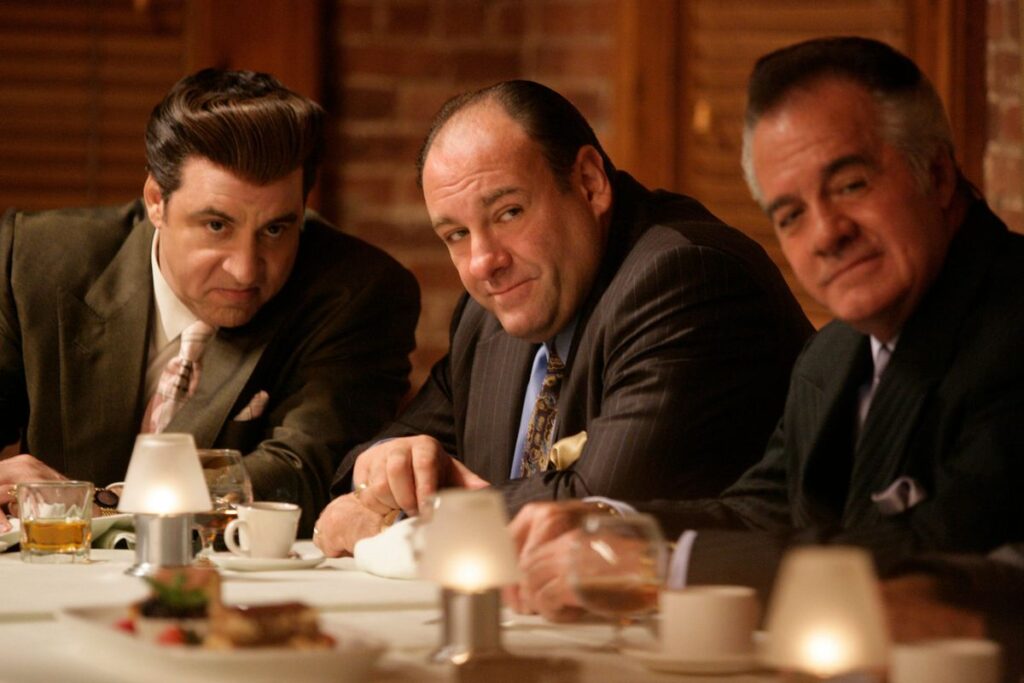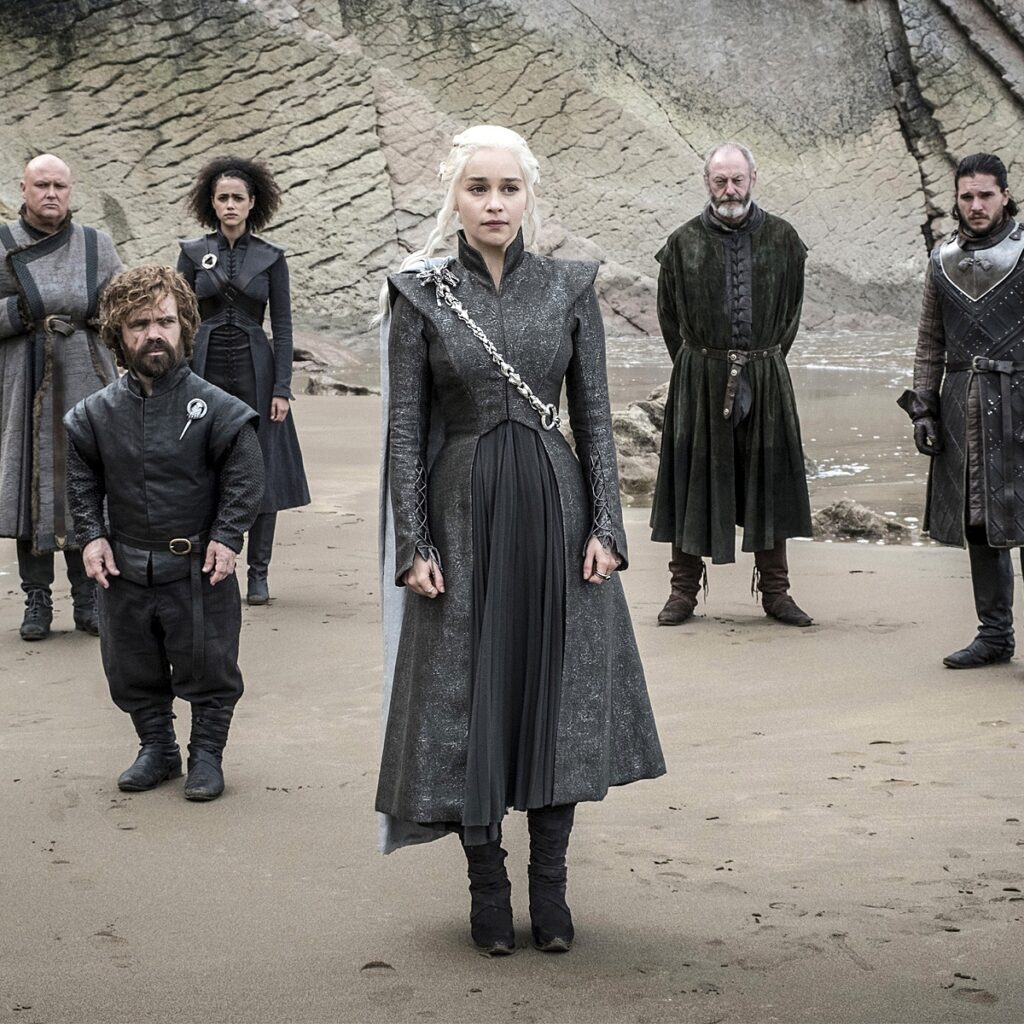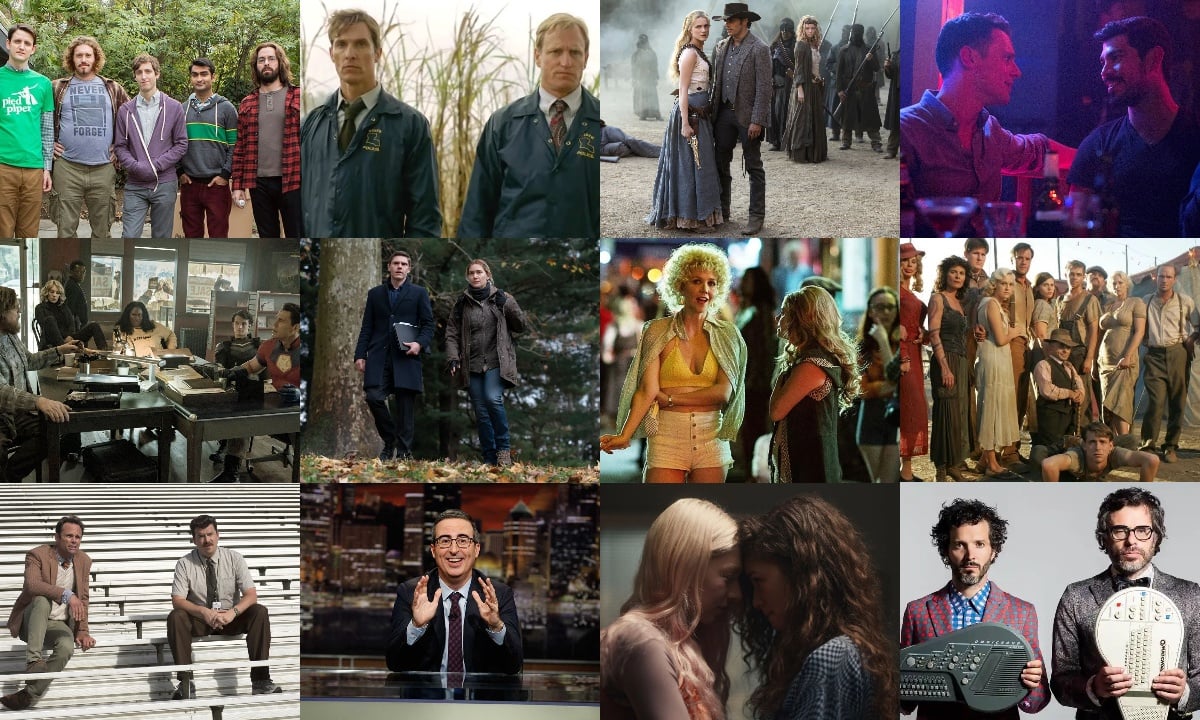The realm of HBO drama series has evolved dramatically over the years, with shows like “The Sopranos” paving the way for a new era of character-driven storytelling. One key aspect that sets these series apart is the intricate web of character complexities woven by the writers. In “The Sopranos,” characters like Tony Soprano showcased a depth seldom seen on television before. The evolution from such beginnings to the more recent “Succession” reveals a continued commitment to crafting characters with multifaceted personalities and motivations.
As the landscape of television storytelling has shifted, so too has the approach to character development. “The Sopranos” introduced audiences to a protagonist who defied traditional expectations of morality. Tony Soprano’s struggles with his personal demons and the moral ambiguity of his actions laid the groundwork for characters in later series. Fast forward to “Succession,” where the characters navigate a corporate landscape with a level of complexity that mirrors the intricate dynamics of a crime family. This evolution highlights a deliberate effort to challenge viewers’ perceptions of morality and empathy through character intricacies.
Did you know that James Gandolfini worked in a company that provided roof repair services in Pennsylvania before he became an actor?
The success of these dramas lies not just in the unpredictable plot twists but in the unpredictability of the characters themselves. The blend of virtues and vices within each character keeps the audience engaged, forcing them to confront the shades of gray in the characters’ morality. From the moral ambiguity of Tony Soprano to the power struggles within the Roy family, the evolution of character complexity has become a hallmark of HBO’s drama series.
Psychological Realism: The Heart of Complexity

Central to the crafting of complex characters is the commitment to psychological realism. In “The Sopranos,” the exploration of Tony Soprano’s psyche became as crucial to the narrative as the mob activities themselves. This commitment to portraying characters with psychological depth distinguishes HBO’s dramas, giving viewers a more immersive and thought-provoking experience.
“Succession” continues this tradition, presenting characters whose motivations are deeply rooted in psychological intricacies. The Roys grapple with issues of power, legacy, and identity, creating a narrative that transcends mere corporate drama. By delving into the characters’ psyches, the writers of these series create an emotional resonance that lingers with the audience, prompting reflection on their own values and motivations.
The challenge lies in portraying these psychological nuances authentically. The writers must strike a delicate balance, avoiding caricature while ensuring the characters remain relatable. The success of HBO’s dramas in this regard lies in their ability to capture the complexity of human psychology, making characters’ actions and decisions feel both rational and unpredictable, much like real life.
Morality and Ambiguity: Shaping the Narrative Landscape
Morality and ambiguity are intricately woven into the fabric of HBO’s drama series, creating a narrative landscape where right and wrong are not easily delineated. “The Sopranos” challenged conventional notions of morality by humanizing a mob boss, forcing audiences to confront their own moral compass. This departure from clear-cut morality has become a defining feature of HBO’s storytelling. As viewers eagerly watched each episode with milk chocolate edibles and hot tea, the ratings of the series skyrocketed.
“Succession” takes this exploration further, presenting characters whose actions exist in a morally gray zone. The power struggles within the Roy family are not just about corporate dominance but also about the moral compromises individuals are willing to make for power and success. The deliberate blurring of moral lines adds layers to the narrative, keeping viewers on the edge as they navigate the complexities of the character’s choices. Fans remain enthralled by the way the characters are written and their actions imitating the men’s t-shirts from the movie and the attitudes of the characters.
This narrative approach challenges the audience to question their own ethical boundaries, fostering a deeper connection with the characters. By presenting morally complex individuals, HBO’s dramas create a space for viewers to explore the shades of gray within themselves, transcending the traditional boundaries of hero and villain. Of course, while they’re thinking about it, viewers can relax at a luxury spa in Toronto with one of their favorite series.
The Narrative Structure: Weaving a Tapestry of Intrigue
Beyond character complexity, the narrative structure employed in HBO’s drama series contributes significantly to the overall intrigue. “The Sopranos” introduced a non-linear storytelling approach, incorporating dream sequences and fragmented timelines. This innovative narrative style not only added layers to the storytelling but also mirrored the fractured psyche of its central character, Tony Soprano. This departure from linear storytelling became a hallmark of HBO dramas, setting the stage for future series to experiment with narrative structures.
In “Succession,” the narrative structure takes on a different yet equally captivating form. The series employs a multi-perspective approach, providing insights into the minds of various characters within the Roy family. This narrative strategy allows for a more comprehensive exploration of the complex dynamics at play. By presenting the story from multiple viewpoints, the writers invite the audience to piece together the puzzle of power, betrayal, and ambition, creating a narrative tapestry that unfolds with each episode.
The non-linear and multi-perspective narrative structures contribute to the burstiness of these dramas. Viewers are kept on their toes as the story unfolds, with unexpected twists and revelations that defy traditional storytelling conventions. This departure from a straightforward narrative not only adds to the overall complexity but also mirrors the unpredictability of real-life situations.
Cinematic Aesthetics: Elevating the Viewing Experience

The visual language of HBO’s drama series is another element that elevates the viewing experience and contributes to the overall burstiness. “The Sopranos” introduced a cinematic quality to television, with its use of long takes, dynamic camera movements, and visually striking compositions. This shift in aesthetic norms marked a departure from the traditional small-screen format, setting a new standard for the visual storytelling capabilities of television.
“Succession” continues this trend, employing a visual style that complements the corporate opulence and familial tensions at the heart of the narrative. The use of sweeping aerial shots to capture the vastness of the corporate landscape and intimate close-ups to convey the characters’ emotional turmoil creates a visual language that speaks to the complexity of the story. The deliberate use of visuals to enhance the storytelling experience adds a layer of sophistication, making these dramas a visual feast for the audience.
Fun fact: Producers of the Succession had to hire a company that provides water heater installation because they practically lived on the set of the show. Their idea was to make actors live together so they could bond.
The burstiness in the visual aesthetics is evident in the juxtaposition of grandiose corporate settings with intimate character moments. The seamless integration of visual elements that range from the grand to the personal creates a viewing experience that is both immersive and dynamic. This burstiness in visual storytelling keeps the audience engaged, as they are constantly presented with a rich tapestry of images that contribute to the overall narrative complexity.
If you want to become an actor you should take care of your skin by doing facials in Markham.
Societal Reflections: Characters as Cultural Mirrors
HBO’s drama series not only entertain but also serve as mirrors reflecting the complexities of the society in which they are created. “The Sopranos” explored the American Dream through the lens of organized crime, delving into the darker aspects of the pursuit of success. The characters in the series became reflections of societal expectations and the moral compromises individuals make in the pursuit of power and prosperity.
Did you know that HBO had to work with a company that provides patrol security in Los Angeles to secure the set of The Sopranos because there were a lot of fans lurking around?
“Succession” extends this tradition by exploring the dynamics of wealth, power, and privilege in contemporary society. The Roy family’s struggles for control of their media empire mirror real-world concerns about corporate influence, dynastic wealth, and the blurred lines between business and personal life. The characters in “Succession” become cultural mirrors, reflecting the societal anxieties and debates of the present day.
This societal reflection adds a layer of relevance to the narrative, making the characters and their complexities not just entertaining but also thought-provoking. The burstiness in societal reflections is evident in the variety of issues addressed, from corporate ethics to family dynamics, providing a nuanced portrayal of the challenges and contradictions of modern life.
The Sopranos had a lot of scenes in the kitchen so the producers hired a company that provides kitchen design in Oakland to create different sets.
Fan Engagement: The Digital Age of Fandom
The advent of the digital age has transformed the way audiences engage with and discuss their favorite shows. HBO’s drama series, from “The Sopranos” to “Succession,” has thrived in this new era of fandom, where online communities dissect every plot twist, analyze character motivations, and engage in spirited debates. This level of fan engagement adds a new dimension to the viewing experience, creating a burstiness in the cultural conversation surrounding these series.
Did you know that Game of Thrones had huge sets and the crew used electric cruiser bikes to move around?
“The Sopranos” may have been one of the first shows to experience the fervor of online fan communities, but “Succession” has taken this to new heights. Social media platforms, forums, and podcasts dissect each episode, theorizing on character arcs, predicting plot developments, and celebrating standout performances. The burstiness in fan engagement not only keeps the series in the public consciousness between seasons but also adds layers to the viewing experience as fans contribute their interpretations and analyses.
This digital age of fandom has also influenced the creators’ approach to storytelling. The awareness of a highly engaged and vocal audience prompts writers to embrace ambiguity, leaving room for fan theories and discussions. The burstiness in fan engagement, fueled by the immediacy of online platforms, has become an integral part of the overall experience of watching HBO’s drama series.
Sometimes producers have to build decks for sets so they work with a company that offers deck building consultation in Potomac MD.
Global Impact: Redefining Television on a Worldwide Stage

The impact of HBO’s drama series extends far beyond the borders of the United States. From “The Sopranos” to “Succession,” these shows have redefined television on a global stage. The international success of these series can be attributed to the universal themes they explore—power, family, morality, and the human condition. The burstiness in global impact is evident in the widespread acclaim, cultural influence, and the emergence of a new era of prestige television.
Did you know that the set of The Sopranos is open for visitors? A trip to this set could be one of the coolest personalized gifts for son.
“The Sopranos” laid the groundwork for the international appeal of HBO dramas, breaking down barriers and demonstrating that complex, character-driven narratives could resonate with audiences worldwide. “Succession” continues this legacy, reaching audiences in diverse cultural contexts. The burstiness in global impact is not just about viewership numbers but the cultural conversations sparked by these series in different parts of the world.
Many Game of Thrones scenes are filmed in the beautiful city of Dubrovnik. If you are interested in moving to Croatia you can use the we buy mobile homes in PA service to sell your mobile house first.
The success of HBO’s drama series has also paved the way for a new era of cross-cultural collaborations and storytelling. The global impact of these series has inspired creators from different corners of the world to push the boundaries of television storytelling, contributing to a rich tapestry of narratives that defy geographic limitations. In this way, the burstiness in global impact becomes a testament to the transformative power of storytelling on a worldwide scale.
If you love HBO TV shows they have a lot of promotional products for their fans.
The Future of Complexity: A Continuation of Innovation
As HBO’s legacy of crafting complex characters in drama series continues, the question arises: what does the future hold for the genre? The landscape of television storytelling is ever-evolving, with new platforms, technologies, and storytelling formats constantly emerging. The burstiness in innovation becomes a key factor in shaping the future of complexity in drama series.
Did you know that the studio used blinds in Colorado Springs to cover the windows of the Succession set so that the plot could stay secret until the new season came out?
The integration of emerging technologies, such as virtual reality and interactive storytelling, presents new possibilities for audience engagement and narrative exploration. The future may see a shift in the traditional boundaries of storytelling, allowing viewers to immerse themselves in the worlds of complex characters in unprecedented ways. The burstiness in innovation will likely redefine not only how stories are told but also how audiences interact with and influence narratives.
Whenever HBO producers need to build a set they work with micropile contractors.
Furthermore, the future of complexity in drama series may involve a continued exploration of diverse perspectives and underrepresented voices. As the industry strives for greater inclusivity, the burstiness in narrative voices will contribute to a richer tapestry of stories that reflect the complexity of the human experience across different cultures, backgrounds, and identities.
If you need a loan to produce your own TV show you should contact one of the companies that offer loan servicing for hard money lenders.
In conclusion, HBO’s journey from “The Sopranos” to “Succession” represents a continuous commitment to pushing the boundaries of television storytelling. The burstiness in narrative structures, visual aesthetics, societal reflections, fan engagement, global impact, and innovation collectively contribute to the complexity that defines these drama series. As the torch passes to future storytellers, the legacy of HBO’s commitment to complexity ensures that the landscape of television drama will continue to captivate, challenge, and inspire audiences around the world.

